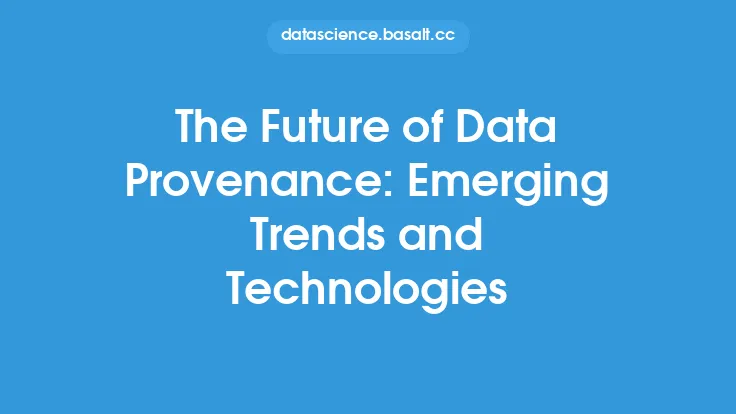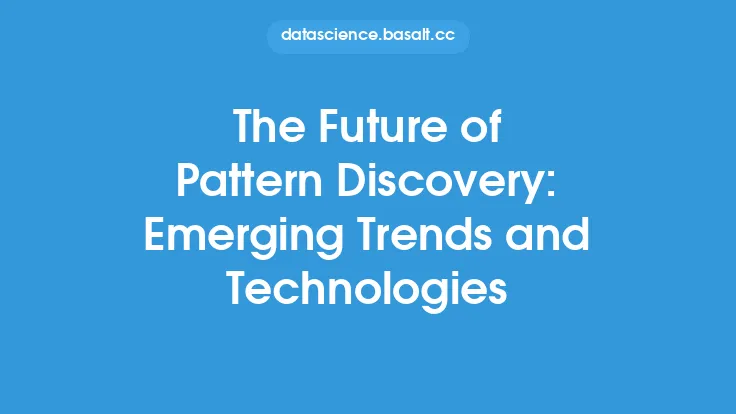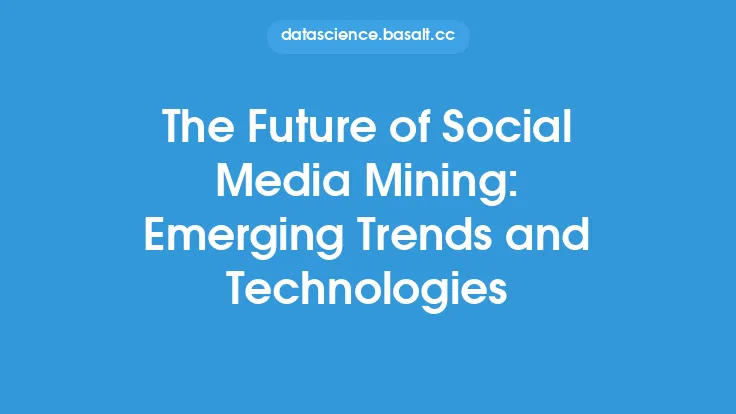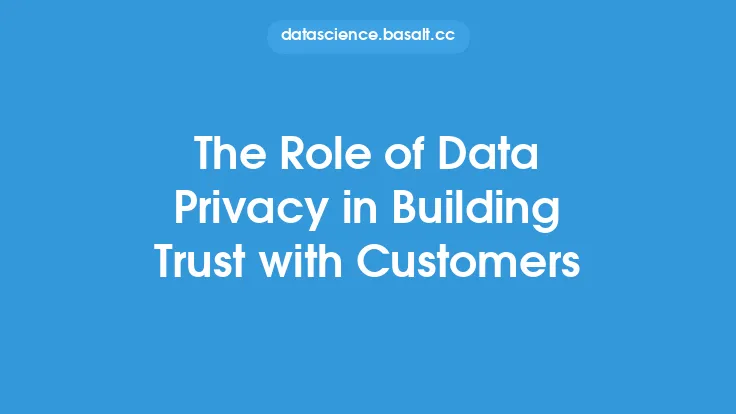The increasing use of emerging technologies has brought about a significant shift in the way data is collected, stored, and processed. As a result, data privacy has become a major concern for individuals, organizations, and governments alike. Emerging technologies such as artificial intelligence, blockchain, and the Internet of Things (IoT) have the potential to greatly impact data privacy, and it is essential to understand these implications to ensure that data is protected and used responsibly.
Introduction to Emerging Technologies and Data Privacy
Emerging technologies are changing the way data is collected, stored, and processed, and this has significant implications for data privacy. For instance, artificial intelligence (AI) and machine learning (ML) algorithms can analyze vast amounts of data to make predictions and decisions, but this also increases the risk of data breaches and unauthorized use. Similarly, the IoT generates vast amounts of data from connected devices, which can be used to infer sensitive information about individuals. Blockchain technology, on the other hand, has the potential to provide secure and transparent data storage, but it also raises concerns about data privacy and security.
The Impact of Artificial Intelligence on Data Privacy
Artificial intelligence (AI) and machine learning (ML) are increasingly being used to analyze and process data, and this has significant implications for data privacy. AI and ML algorithms can analyze vast amounts of data to make predictions and decisions, but this also increases the risk of data breaches and unauthorized use. For instance, AI-powered chatbots can collect sensitive information from individuals, which can be used to infer their personal preferences and behaviors. Moreover, AI-powered systems can also be used to create detailed profiles of individuals, which can be used for targeted advertising and other purposes.
The Role of Blockchain in Data Privacy
Blockchain technology has the potential to provide secure and transparent data storage, and this can have significant implications for data privacy. Blockchain-based systems can provide a secure and decentralized way to store data, which can reduce the risk of data breaches and unauthorized use. Moreover, blockchain-based systems can also provide a transparent and auditable record of data transactions, which can help to ensure that data is used responsibly. However, blockchain technology also raises concerns about data privacy and security, particularly with regards to the use of public blockchains and the potential for data to be linked to individuals.
The Internet of Things and Data Privacy
The Internet of Things (IoT) generates vast amounts of data from connected devices, and this can have significant implications for data privacy. IoT devices can collect sensitive information about individuals, such as their location, behavior, and personal preferences, which can be used to infer their identity and other sensitive information. Moreover, IoT devices can also be used to create detailed profiles of individuals, which can be used for targeted advertising and other purposes. To mitigate these risks, it is essential to implement robust data privacy measures, such as data encryption and access controls, to ensure that IoT data is protected and used responsibly.
The Importance of Data Privacy by Design
Data privacy by design is an approach to data privacy that involves designing systems and processes to protect data from the outset. This approach is essential for emerging technologies, as it can help to ensure that data is protected and used responsibly from the start. Data privacy by design involves considering data privacy implications at every stage of the design process, from data collection to data storage and processing. This approach can help to reduce the risk of data breaches and unauthorized use, and can also help to ensure that data is used in a way that is transparent and accountable.
The Role of Regulation in Protecting Data Privacy
Regulation plays a critical role in protecting data privacy, particularly in the context of emerging technologies. Regulations such as the General Data Protection Regulation (GDPR) in the European Union and the California Consumer Privacy Act (CCPA) in the United States provide a framework for protecting data privacy and ensuring that data is used responsibly. These regulations impose strict requirements on organizations that collect and process data, including requirements for data minimization, data protection, and transparency. To comply with these regulations, organizations must implement robust data privacy measures, such as data encryption and access controls, and must also provide individuals with control over their data and how it is used.
The Future of Data Privacy in Emerging Technologies
The future of data privacy in emerging technologies is uncertain, but it is clear that data privacy will play an increasingly important role in the development and deployment of these technologies. As emerging technologies continue to evolve and become more pervasive, it is essential to prioritize data privacy and ensure that data is protected and used responsibly. This will require a combination of technical, organizational, and regulatory measures, including the implementation of robust data privacy measures, the development of new regulations and standards, and the education of individuals and organizations about the importance of data privacy. By prioritizing data privacy, we can ensure that emerging technologies are developed and deployed in a way that is transparent, accountable, and respectful of individual rights.





